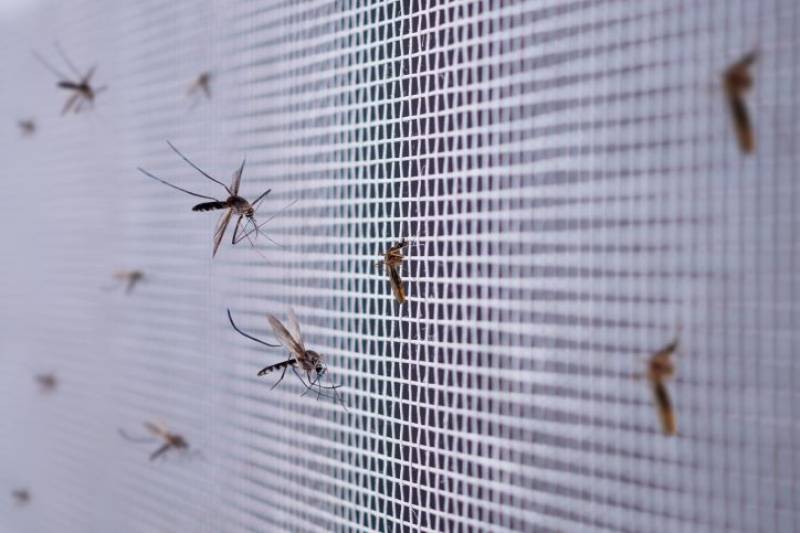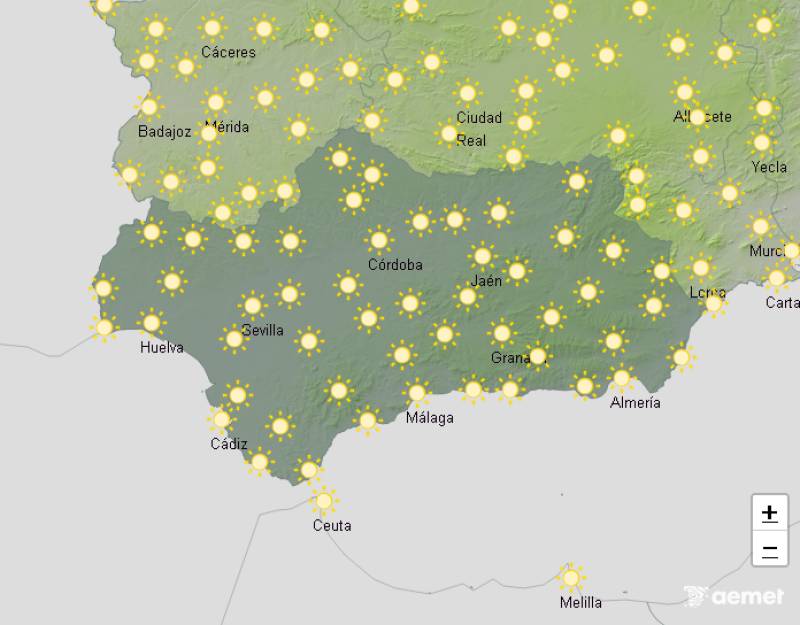- Region
- Vega baja
- Marina Alta
- Marina Baixa
- Alicante
- Baix Vinalopo
- Alto & Mitja Vinalopo
-
ALL TOWNS
- ALICANTE TOWNS
- Albatera
- Alfaz Del Pi
- Alicante City
- Alcoy
- Almoradi
- Benitatxell
- Bigastro
- Benferri
- Benidorm
- Calosa de Segura
- Calpe
- Catral
- Costa Blanca
- Cox
- Daya Vieja
- Denia
- Elche
- Elda
- Granja de Rocamora
- Guardamar del Segura
- Jacarilla
- Los Montesinos
- Orihuela
- Pedreguer
- Pilar de Horadada
- Playa Flamenca
- Quesada
- Rafal
- Redovan
- Rojales
- San Isidro
- Torrevieja
- Comunidad Valenciana
article_detail
Date Published: 28/08/2025
West Nile virus detected in mosquitoes in Pulpí and other parts of Almería
Checks carried out in the Region of Murcia have not yet found any trace of the disease, but experts are still warning people to remain alert

West Nile virus has been detected this summer in mosquitoes in Pulpí and Mojácar (Almería), close to the border of the Region of Murcia. The Andalusian Ministry of Health confirmed three positive samples from Culex mosquitoes, and in July a horse in Almería city tested positive.
These findings show the virus is circulating beyond the western provinces of Andalusia, its usual hotspot, though no human cases have been reported in Almería or nearby regions.
The discovery is of concern for Murcia, where similar environmental conditions exist. So far, no positive cases have been found in ongoing monitoring by the regional Ministry of Health, though experts note that surveillance has been less extensive than in Andalucía.
Francisco Collantes, zoology professor at the University of Murcia, has warned that infected mosquitoes could be present undetected.
Mosquitoes transmit the virus after biting infected birds, potentially passing it on to humans and horses. Most human infections cause no symptoms, but when they do, they can include fever, headache, fatigue, body aches, diarrhoea or rash. Severe cases, such as meningoencephalitis, are very rare and usually affect older or immunosuppressed people.
Spain reported 157 human cases of West Nile fever last year, including twelve deaths, mostly in western Andalusia. Cases have also appeared in Extremadura and Castilla-La Mancha. No human cases have been detected this summer, suggesting that preventive measures such as mosquito-trap monitoring are working. These traps recently identified the positive samples in Almería.
West Nile virus was first detected in Spain in 2010, with larger outbreaks from 2020 onwards. Human cases have since been confirmed in Andalucía, Extremadura, Catalonia, Castilla-La Mancha and the Valencian Community.
In Murcia, the Ministry of Health and the University of Murcia run a mosquito testing programme using PCR to detect viruses including West Nile and dengue. Murcia recorded its first local dengue outbreak in 2018 with five cases, while Tarragona saw eight cases last year. In 2023, Usutu virus, a related but less dangerous pathogen, was detected in mosquitoes in Cartagena and Mazarrón, though no human cases occurred.
This summer, Murcia has strengthened entomological surveillance by awarding contracts to Lokimica for mosquito collection and analysis, and to the University of Murcia for advanced pathogen testing, including for flaviviruses and other vector-borne diseases.
staff.inc.ali
Loading
See more news about animals in Spain:
OR
Sign up for the Spanish News Today Editors Roundup Weekly Bulletin to get a comprehensive email with all the week’s news for Spain, Murcia, Alicante and Andalucía.
Get a sneak peek – here are a few of our recent Subscription Bulletins:
Discount Special Offer subscription:
36.95€ for 48 Editor’s Weekly News Roundup bulletins!
Please CLICK THE BUTTON to subscribe.
Contact Murcia Today: Editorial 000 000 000 /
Office 000 000 000























